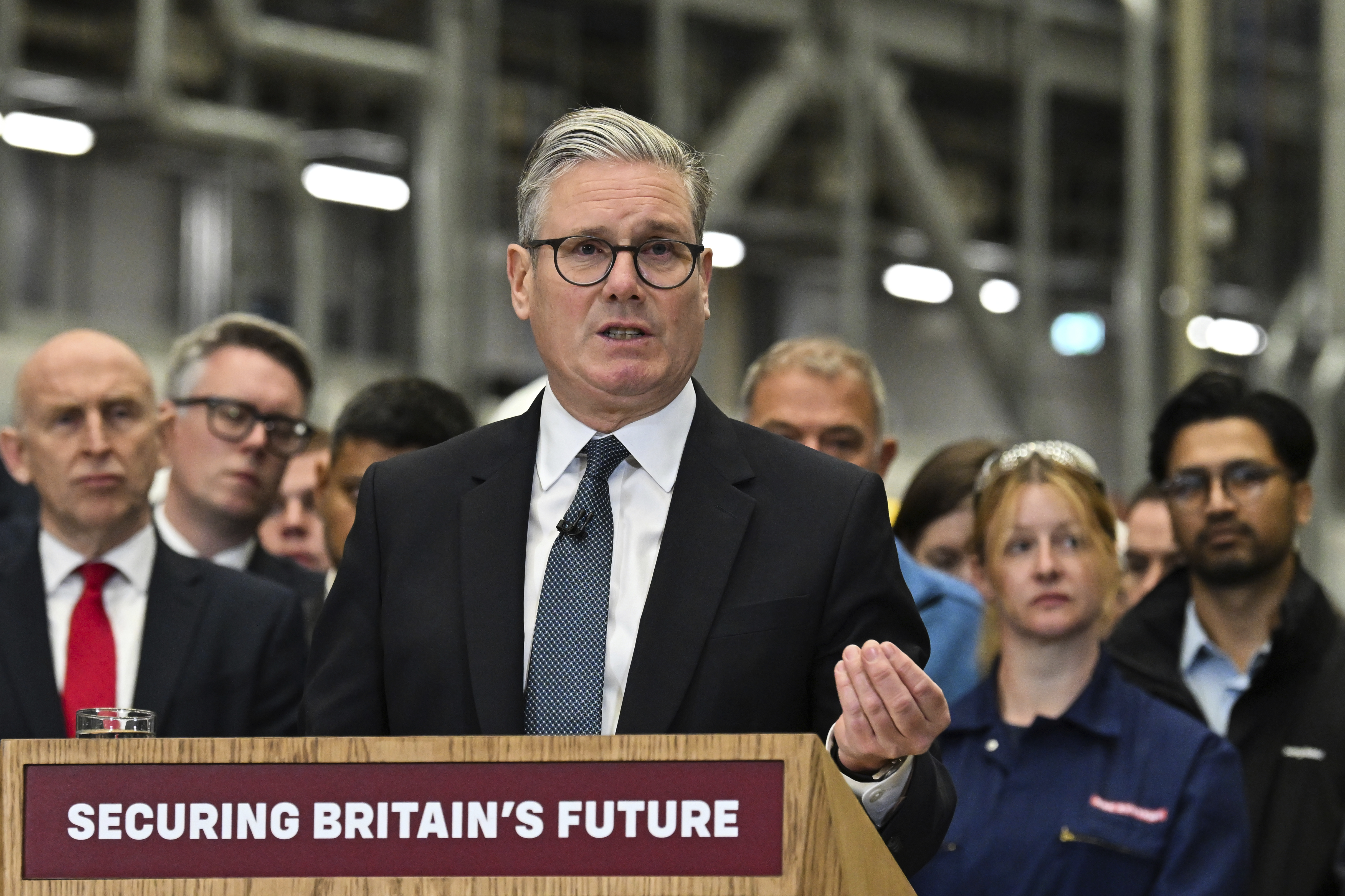
LONDON - British Prime Minister Keir Starmer on Monday unveiled the country's long-anticipated Strategic Defence Review, but stopped short of committing to raising defence spending to 3 percent of gross domestic product (GDP).
Speaking in Glasgow, Starmer outlined "three fundamental changes" to defense strategy: reorienting the Armed Forces toward warfighting readiness, reinforcing NATO as Britain's "first priority," and accelerating innovation "at a wartime pace" to make the British military "ten times more lethal by 2035."
ALSO READ: British PM says to increase defense spending to 2.5% of GDP by 2027
As part of the review, Starmer announced plans to build at least six new munitions factories, deliver up to 12 attack submarines, and invest 15 billion pounds ($20.31 billion) in the country's nuclear warhead program.
The review sets out a plan to raise Britain's defence spending to 2.5 percent of GDP by 2027, which falls short of the 3 percent target US President Donald Trump has urged Britain to meet by 2029.
While the review noted an ambition to raise the defense budget to the 3 percent threshold during the next parliament, Starmer declined to commit to a timeline: "I'm not going to put arbitrary dates on that percentage."
READ MORE: UK economy has a growth spurt before tax and tariff challenges
Asked about potential trade-offs between defence spending and public services, Starmer stressed that economic growth would be the primary funding source: "The best way to pay for an increase in any public spending is to grow our economy." However, he did not rule out further reductions to the foreign aid budget.
James Cartlidge, the Conservative Party's Shadow Defence Secretary, questioned the feasibility of the government's plan. "All of Labour's Strategic Defence Review promises will be taken with a pinch of salt unless they can show there will actually be enough money to pay for them," Cartlidge said. "These submarines are not due to enter service till the late 2030s, so how can we have any confidence Labour will actually deliver them when they can't even sustain a policy on defence spending for more than 48 hours?"
ALSO READ: US, Britain reach trade deal, details yet to be finalized
Helen Maguire, defence spokeswoman for the Liberal Democrats, echoed that concern. "Labour's mere 'ambition' rather than commitment to reach three percent of GDP on defence leaves serious questions about whether the money for these projects will actually be forthcoming," she said.


